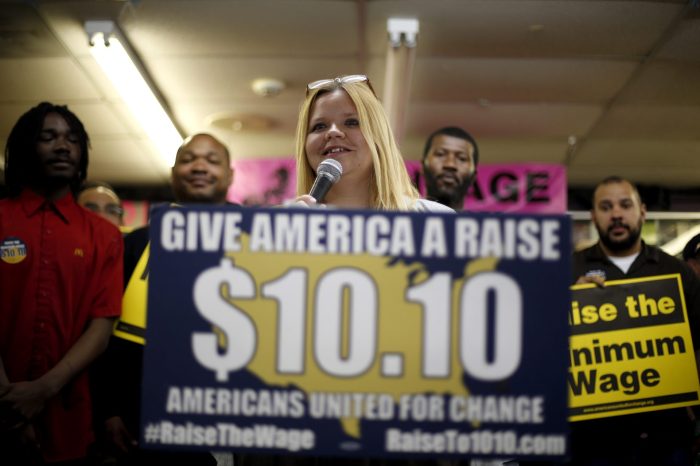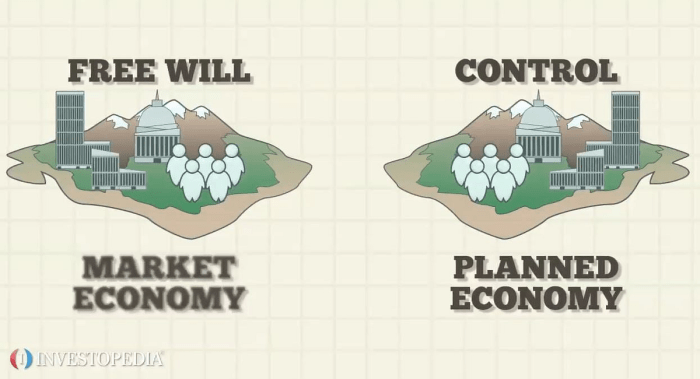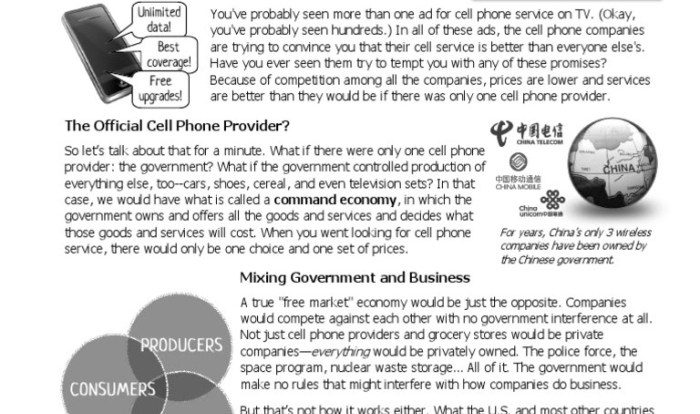The libertarian view on minimum wage stands as a cornerstone of economic philosophy, emphasizing individual liberty and free market principles. This perspective challenges the notion of government intervention in wage determination, advocating for a labor market unfettered by artificial constraints.
Within the libertarian framework, minimum wage laws are seen as a violation of individual rights and a distortion of the free market. Libertarians argue that such policies undermine the natural forces of supply and demand, leading to unintended consequences that harm workers and the economy as a whole.
Libertarian Philosophy
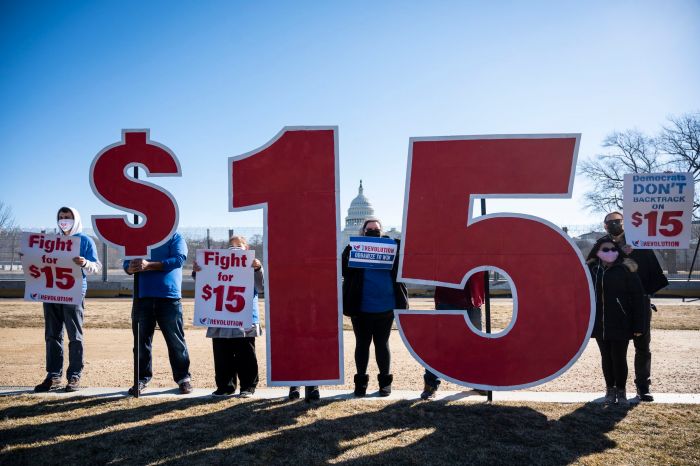
Libertarianism is a political philosophy that advocates for individual liberty and limited government intervention in the economy and social life.
Libertarians believe that individuals should be free to make their own choices, without government interference, as long as they do not harm others.
Core Principles of Libertarianism
- Individual liberty: Libertarians believe that individuals should be free to make their own choices about their lives, as long as they do not harm others.
- Limited government: Libertarians believe that the government should have a limited role in society and that its primary function should be to protect individual rights.
- Free markets: Libertarians believe that the free market is the most efficient way to allocate resources and that government intervention in the economy should be minimized.
Libertarian Perspective on Government Intervention in the Economy
Libertarians believe that government intervention in the economy is generally harmful because it restricts individual liberty and leads to inefficiency.
They argue that government regulations and taxes create barriers to entry for new businesses, stifle innovation, and lead to higher prices for consumers.
Libertarians also believe that government spending and borrowing can lead to inflation and economic instability.
Minimum Wage Arguments: Libertarian View On Minimum Wage
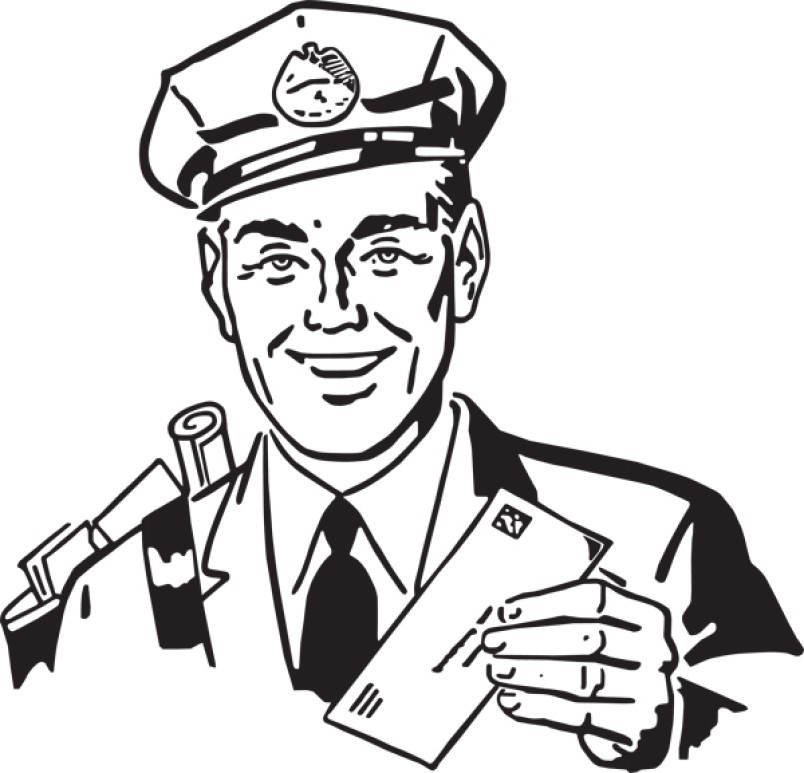
The debate over minimum wage has been a contentious issue for decades, with proponents and opponents citing various arguments to support their respective positions. This section provides an overview of the arguments in favor of and against a minimum wage.
Arguments in Favor of a Minimum Wage
Proponents of a minimum wage argue that it helps to reduce poverty and income inequality. They contend that low-wage workers often struggle to make ends meet and that a higher minimum wage would provide them with a more livable income.
Additionally, they argue that a minimum wage can help to stimulate the economy by increasing consumer spending.
Another argument in favor of a minimum wage is that it can help to reduce turnover and absenteeism among low-wage workers. When workers are paid a fair wage, they are more likely to be satisfied with their jobs and less likely to leave or miss work.
This can lead to increased productivity and lower costs for businesses.
Arguments Against a Minimum Wage
Opponents of a minimum wage argue that it can lead to job losses, particularly among low-skilled workers. They contend that businesses will be forced to reduce their workforce or cut hours in order to pay the higher wage. Additionally, they argue that a minimum wage can lead to inflation, as businesses pass on the increased labor costs to consumers.
Another argument against a minimum wage is that it can create a disincentive for workers to develop skills and advance in their careers. When workers are guaranteed a certain wage regardless of their productivity, they may have less motivation to improve their skills or seek higher-paying jobs.
Libertarian View on Minimum Wage
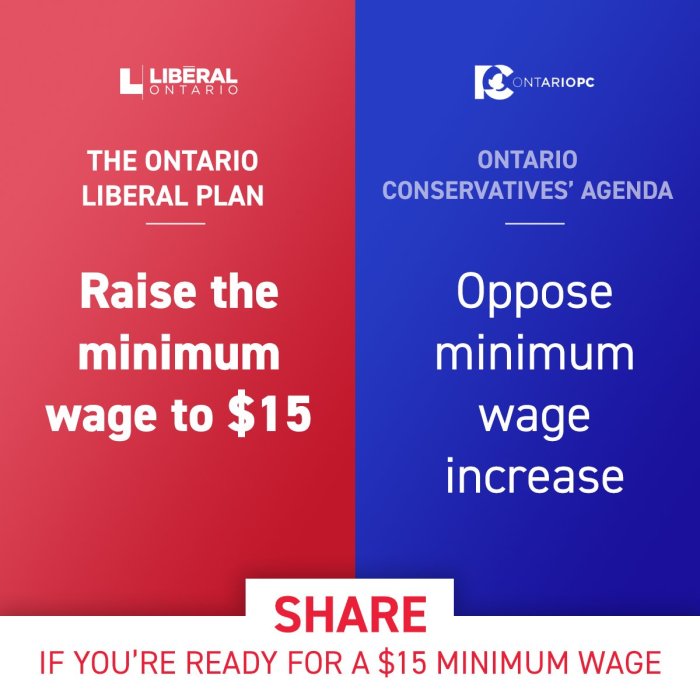
The libertarian view of the minimum wage is that it is a government intervention in the free market that artificially inflates the price of labor. Libertarians believe that the free market should be allowed to determine wages, and that government intervention only serves to distort the market and create unintended consequences.
Minimum Wage Affects the Free Market
Libertarians argue that a minimum wage affects the free market in several ways:
- It raises the cost of labor for businesses, which can lead to job losses.
- It reduces the number of jobs available to low-skilled workers.
- It creates a disincentive for businesses to invest in training and development for low-skilled workers.
li>It leads to higher prices for goods and services, as businesses pass on the cost of the minimum wage to consumers.
Impact on Workers

Libertarians argue that a minimum wage has a negative impact on low-skilled workers. They contend that by setting a higher wage floor, employers will be less likely to hire low-skilled workers, as their productivity may not justify the increased labor costs.
This can lead to job losses and reduced employment opportunities for those at the lower end of the wage spectrum.
Unintended Consequences, Libertarian view on minimum wage
Libertarians also raise concerns about the potential unintended consequences of a minimum wage. They argue that it can lead to:
- Increased unemployment, as employers may opt to automate tasks or outsource jobs to avoid paying higher wages.
- Inflation, as businesses may pass on the increased labor costs to consumers in the form of higher prices.
- Reduced economic growth, as businesses may have less capital available for investment and expansion.
Alternative Solutions
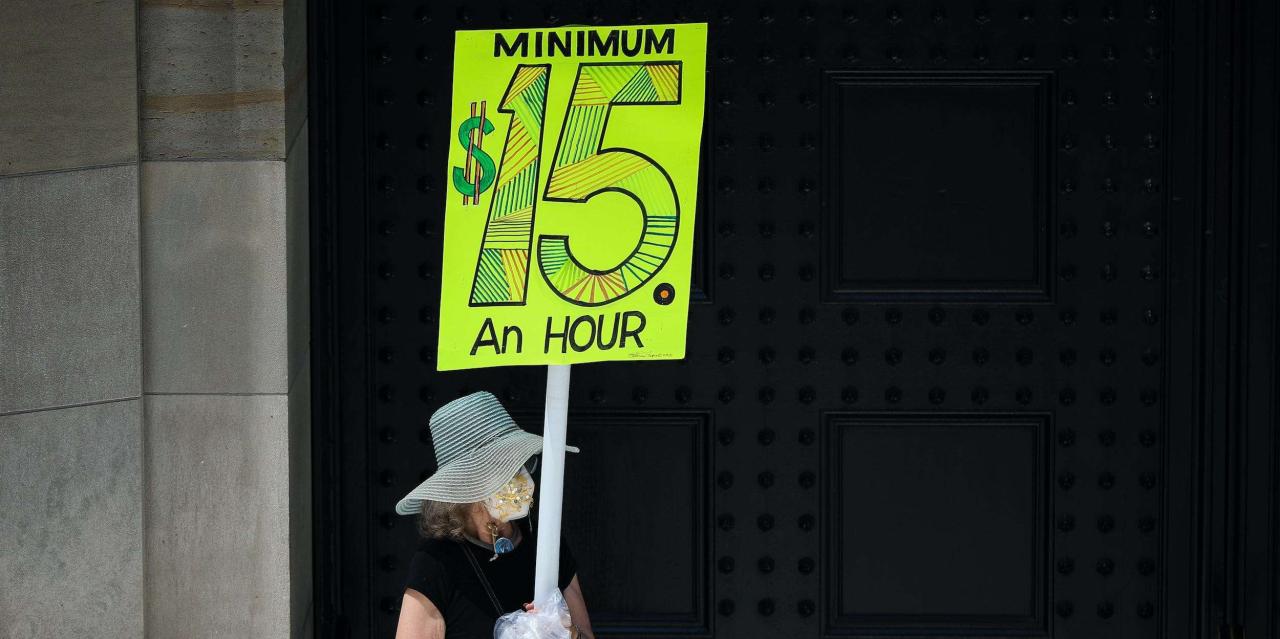
Libertarians propose alternative solutions to address low wages, arguing that the minimum wage is an ineffective and counterproductive measure.
They emphasize the importance of free market principles, such as:
Role of Education and Training
- Investing in education and training programs to enhance workers’ skills and qualifications, thereby increasing their earning potential.
- Providing tax incentives to businesses that offer apprenticeship programs and on-the-job training.
Support for Entrepreneurship
- Encouraging entrepreneurship and small business creation, which can create new job opportunities and stimulate economic growth.
- Reducing regulatory burdens and taxes that hinder business formation and expansion.
Voluntary Agreements
- Promoting voluntary agreements between employers and employees, allowing them to negotiate wages and benefits that suit their specific needs.
- Supporting industry-led initiatives to establish wage standards and address workplace issues.
Role of Unions and Other Organizations
Libertarians generally oppose the mandatory nature of unions and believe that workers should have the freedom to choose whether or not to join a union.
However, they acknowledge that unions and other organizations can play a role in addressing wage issues through:
- Collective bargaining, allowing workers to negotiate for better wages and working conditions.
- Providing training and support services to workers, enhancing their skills and employability.
Top FAQs
What is the core principle behind the libertarian view on minimum wage?
Libertarians believe that individuals should be free to negotiate their own wages without government interference.
How do libertarians argue that minimum wage laws harm workers?
They argue that minimum wage laws can lead to job losses, reduced hours, and fewer opportunities for low-skilled workers.
What alternative solutions do libertarians propose to address low wages?
Libertarians advocate for policies that promote economic growth, such as tax cuts, deregulation, and free trade.
